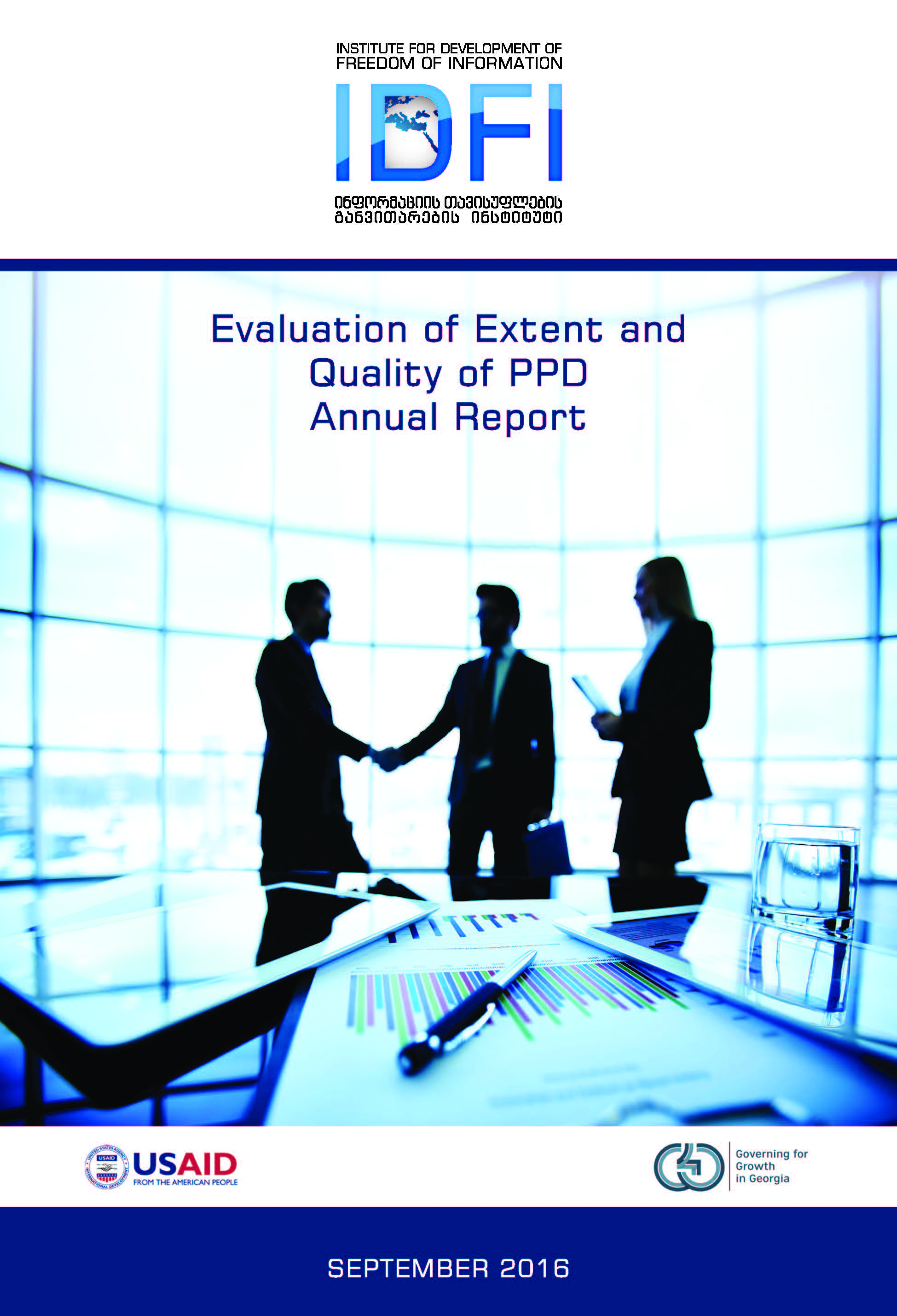


 Authors: Tamar Iakobidze, Nino Merebashvili and Giorgi Kldiashvili
Authors: Tamar Iakobidze, Nino Merebashvili and Giorgi Kldiashvili
Collaboration between public and private actors is vital for economic development. An inclusive, participative, and collaborative development process leads to more effective policies and laws. Nevertheless, effective dialogue between private and public sectors is still a challenge in Georgia. While engagement remains challenging on many levels, it is especially problematic on the initial stages of policy formulation, before formal initiation in the Parliament takes place.
The grant project, “Public-Private Dialogue (PPD) Quality Tracking in Georgia,” implemented by Institute for Development of Freedom of Information (IDFI), with financial support from USAID Governing for Growth (G4G) in Georgia, aims at addressing the abovementioned challenge. Namely, the main objective of the grant project is to assess extent and quality of inclusive consultation in the preparation process of selected draft laws with considerable economic impact.
The results of the first annual study show that, as expected, effective PPDs are more of an exception, than a rule in Georgia.
Some of the main findings revealed by the first year of the study are the following:
- In the absence of direct legal obligations for inclusive consultation during initial stages of policy formulation, most representatives of the public sector do not see the need for ensuring dialogue with the private sector. This problem is especially significant in draft law cases initiated by Members of Parliament (MPs), who showed insufficient examples of PPD quality.
- There is a general lack of understanding for the need as well as practical application of regulatory impact assessment (RIA) in Georgian reality, even in the case of draft laws with substantial economic impact. In the absence of direct requirements to conduct comprehensive RIA, many authors of draft laws with economic impact limit themselves with the explanatory notes. However, the information given in explanatory notes is often too scarce and superficial, not supported with publicly available research and not part of wider public discussion before the draft law is officially initiated.
In order to conduct the assessment, IDFI selected 24 draft laws that were initiated from October 1, 2014 until September 1, 2016. The project team conducted interviews with the authors of selected draft laws using special questionnaires. On September 20, the Institute also held a presentation of the annual assessment report of the quality of dialogue between public and private sectors in Georgia and awarded 3 state agencies with the highest degree of private sector involvement in their draft laws: Ministry of Finance of Georgia; Innovations and Technology Agency of Georgia; and Ministry of Environment and Natural Resources of Georgia.
By revealing the most successful cases of quality PPD in Georgia, our project team hopes to emphasize the positive impact of effective consultation during early stages of the policy-making process, and thus promote more inclusive decision-making at all stages of governance.